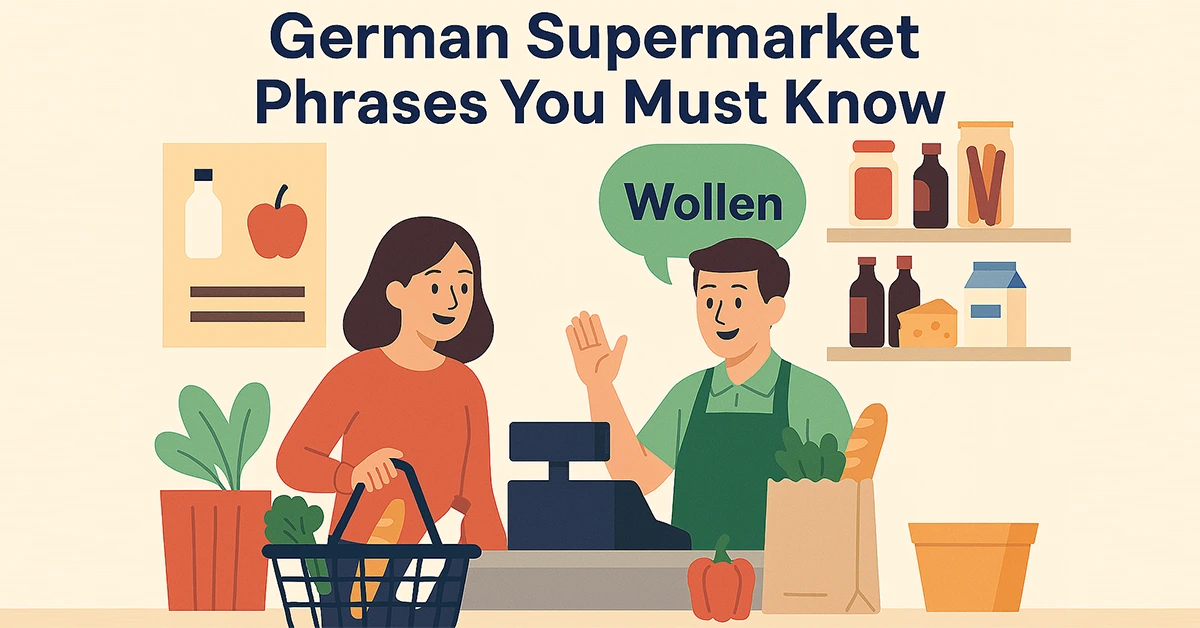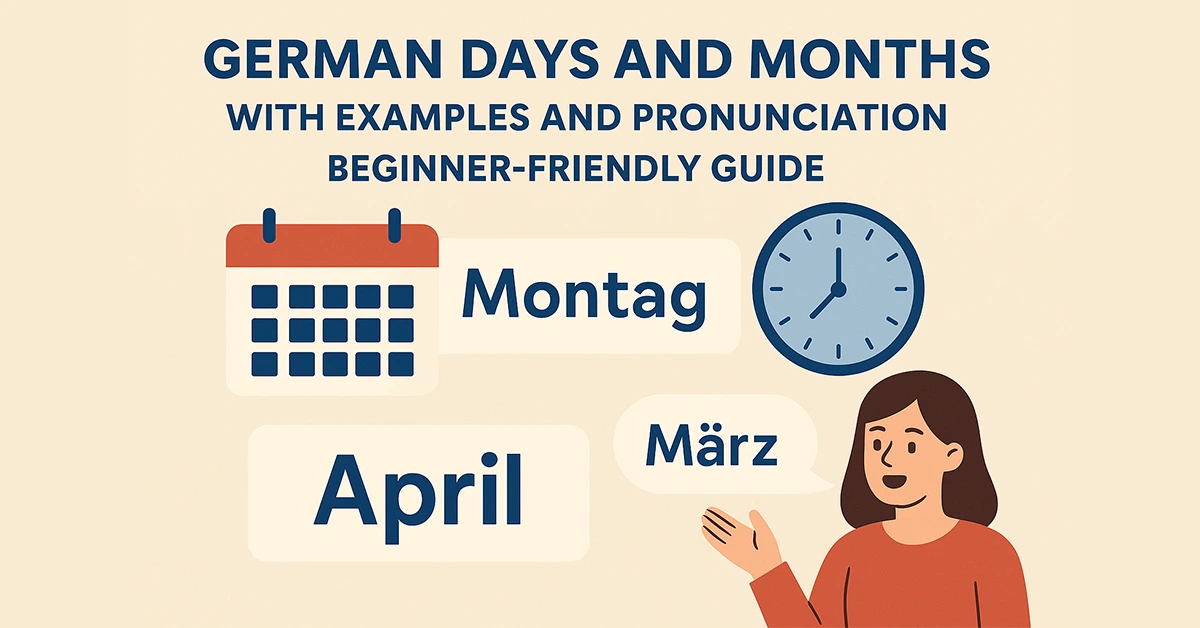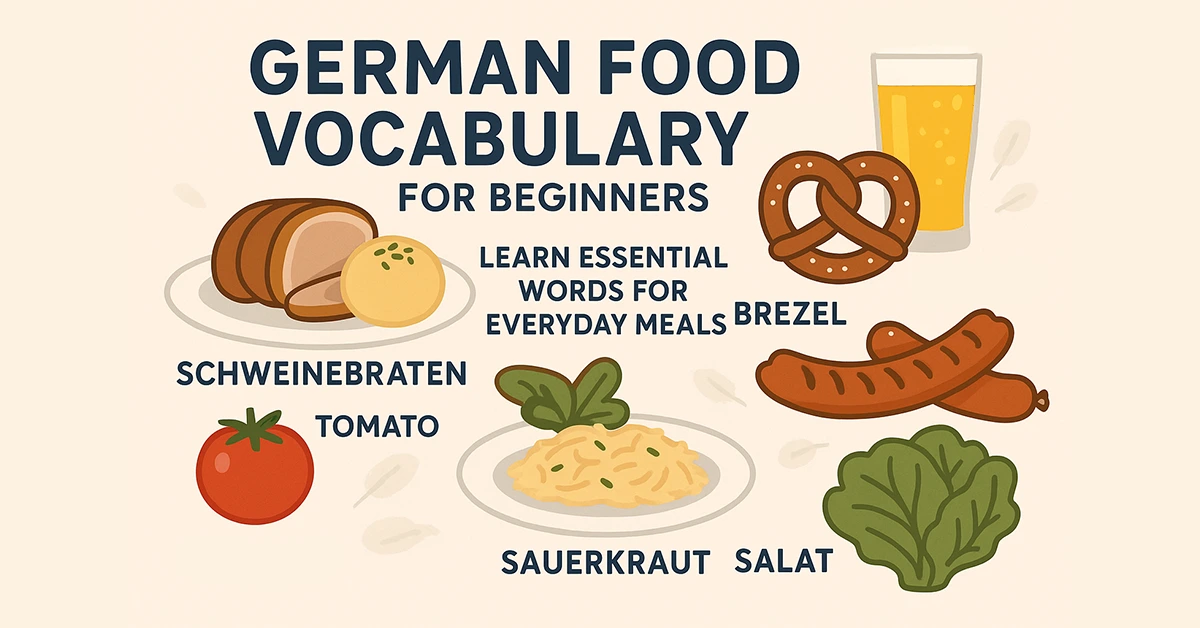learn German vocabulary
-

German Supermarket Phrases You Must Know
Learn essential German supermarket phrases for your next grocery trip in Germany. Master expressions for asking prices, reading labels, and getting help, with examples.
-

German Days and Months – Examples and Easy Pronunciation
Learn all German days of the week and months of the year with examples, English translations, and easy pronunciation. Perfect for A1-A2 beginners!
-

German Food Vocabulary for Beginners – Essential Everyday Words
Learn essential German food vocabulary for beginners! Discover useful words for fruits, meals, drinks & more – with meanings, pronunciation & examples.
-

50 Must-Know German Words for Beginners
Learn the 50 most essential German words for beginners with meanings, pronunciation tips, and examples. Start speaking German today with this simple guide.